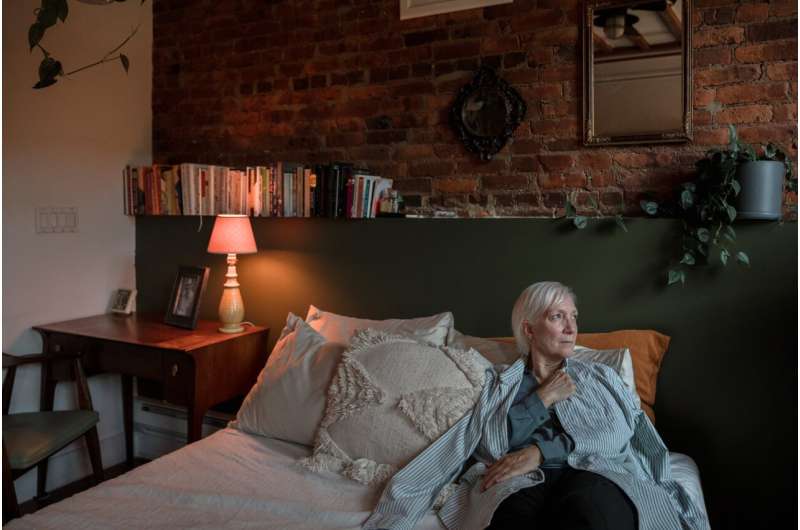This article has been reviewed according to Science X's editorial process and policies. Editors have highlighted the following attributes while ensuring the content's credibility:
fact-checked
trusted source
proofread
One million people in England living shorter lives than they should, says report

A new report from the UCL Institute of Health Equity (IHE) has confirmed that a million people in 90% of areas in England lived shorter lives than they should have between 2011 and the start of the pandemic.
The number of lives shortened is equivalent in size to the whole of Birmingham (and some), 984,333 (people); or Edinburgh and Glasgow together, 1,056,610; or a third of Wales, 3,136,000; or half the population of Northern Ireland, 1,885,000.
Well-established evidence confirms most of our health is determined by our social circumstances and NHS care only accounts for 20% of population health.
In contrast to the traditional focus on the health of the poorest, the new report "Health Inequalities, Lives Cut Short" considers the life expectancy of 90% of the general population who do not live in the 10% of wealthiest areas.
Using several published ONS data sources, the IHE made these calculations from the number of excess deaths (the increase beyond those expected on the basis of death rates for the most advantaged 10% of areas) in the decade from 2011 in England.
Previous research has shown that pre-2010 government policies were beginning to close the health inequalities gap. Such policies included coordinated investment in the early years, education and neighborhood renewal, as well as health care.
However, the new findings from the IHE add weight to its two reviews of health inequalities in 2020 ("10 years On Review" and "COVID-19 Review"): that the cumulative impact of regressive funding cuts, associated with austerity, contributed to life expectancy failing to increase, life expectancy falling for women in the 10% of poorest areas, and health inequalities widening.
To contextualize the U.K.'s downwards health trend, the IHE has additionally analyzed European Union data. The IHE has compared healthy life years (number of years a person is expected to continue to live in a healthy condition—also called disability-free life expectancy) in the U.K. to other European Union countries.
The IHE found that, in 2014, both males and females in the U.K. had a higher average number of healthy years lived (HYL) than those in the EU. However, by 2017, HLY in the U.K. had stagnated for men, and fallen for women. In the same period, HLY increased by more than two years in the EU. Consequently, 10 EU countries had higher HLY than the U.K. for males, and 14 had higher HLY than the U.K. for females.
UCL IHE Director, Professor Sir Michael Marmot, whose work on the social determinants of health spans more than 50 years, and has chaired numerous reviews of health inequalities at global, regional, national and local level, said, "If you needed a case study example of what not to do to reduce health inequalities, the U.K. provides it. The only other developed country doing worse is the U.S., where life expectancy is falling.
"Our country has become poor and unhealthy, where a few rich, healthy people live. People care about their health, but it is deteriorating, with their lives shortening, through no fault of their own. Political leaders can choose to prioritize everyone's health, or not. Currently they are not."
The report found that of the 1 million people who died prematurely, 148,000 of them were additional to what might have been expected if the post-2010 austerity measures hadn't been imposed. Additionally in 2020, during the pandemic, inequality between the least and most disadvantaged 10% of areas contributed further 28,000 excess deaths, when compared to that over the previous five years.
Health equity should be central to all UK government policies
As a result, the IHE is calling on the government to put health equity and well-being at the heart of all policies by following the eight "Marmot Principles."
"This is a dismal state of affairs," continued Sir Michael, "I'm saying to party leaders: make this the central plank of the next government—stop policies harming health and widening health inequalities. To MPs: if you care about the health of your constituents, you must be appalled by their deteriorating health. It's time for action and political leadership across the board.
"Important as is the NHS—publicly funded and free at the point of use—action is needed on the social determinants of health: the conditions in which people are born, grow, live, work and age. These social conditions are the main cases of health inequalities."
IHE proposes the appointment of an independent Health Equity Commissioner and establishment of a new cabinet-level health equity and well-being cross-departmental committee.
Sir Michael, a Professor of Epidemiology at UCL, explained, "In the U.K. the IHE is working with more than 40 local areas, businesses and other sectors who are taking this broader approach. They are doing their best to protect lives and promote health equity with their dwindling and inadequate funds. We know what to do. We are seeing a cultural shift and more action on health inequalities in those areas, where local leaders from different sectors are working together to promote health equity, which is magnificent.
"Ensuring all policies are assessed for their likely impact on equity of health and well-being is essential for reducing health inequalities long term. What must happen at the same time, though, is leadership from central government, making reducing health inequalities a central plank of the next government. That means implementing fairer social and economic policies, with health at the heart."
More information: Health Inequalities, Lives Cut Short. www.instituteofhealthequity.or … ties-lives-cut-short




















